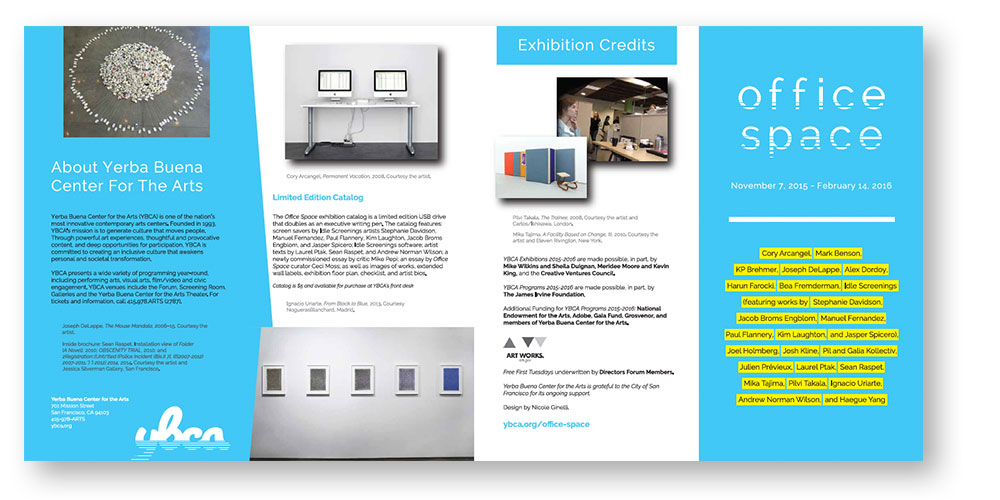Office Space cleverly subverts contemporary office culture as a means to explore labor practices in the 21st century post-industrial economy. As offices become mobile, and the nine-to-five becomes a nonstop 24-hour cycle, this exhibition reflects on what the Italian theorist Maurizio Lazzarato has identified as the rise of “immaterial labor” in developed countries. Citing the predominance of a service and information economy, as well as the rapidly dissolving line between pleasure and work among consumers and workers alike, Lazzarato describes “immaterial labor” as all the ways and means by which goods and services acquire their “informational and cultural content.” He argues that this move has radically modified the management and regulation of the workforce.
Through video, sculpture, painting, installation, and performative interventions, the artists in Office Space interrogate universally recognized aspects of office architecture, design, aesthetics, and protocols as a means to understand the shift toward immaterial labor practices. Numerous approaches toward the re-engineering of work and life are on display, from outright dissent to the status quo, such as in Pilvi Takala’s The Trainee (2008), to humorous hacks, like Cory Arcangel’s Permanent Vacation (2008). Across the entire exhibition, the office becomes emblematic of the changing terrain for labor and productivity in the 21st century.



